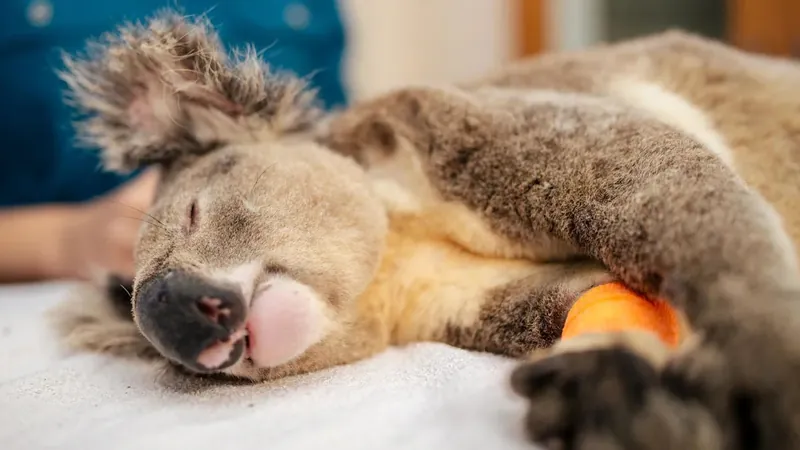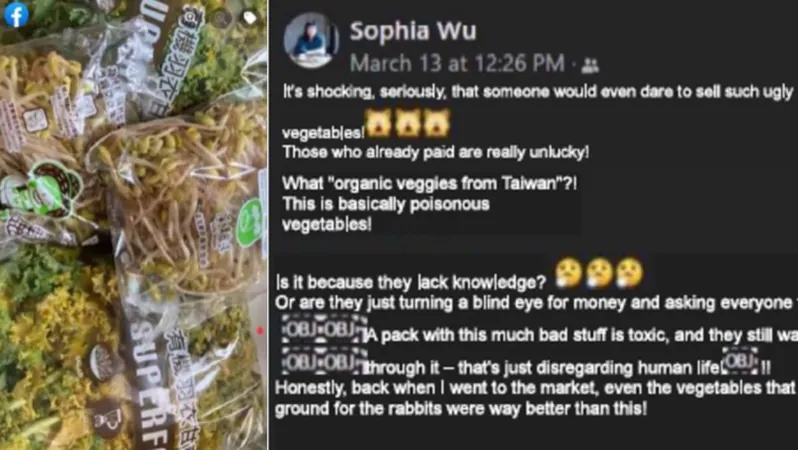
Australia's Groundbreaking Vaccine: A Lifeline for Endangered Koalas
2025-09-09
Author: Daniel
In a historic breakthrough, Australia has approved the world’s first vaccine designed to combat a devastating chlamydia epidemic threatening its beloved koala population. This innovative solution comes after over a decade of dedicated research by scientists at the University of the Sunshine Coast (UniSC).
Dr. Peter Timms, a leading expert in microbiology, highlighted the urgency of this development, noting that certain wild koala colonies are facing alarming infection rates of up to 70 percent, pushing them closer to extinction each day.
The new single-dose vaccine eliminates the need for boosters, making it a practical means to halt the rapid spread of chlamydia, which has been linked to approximately half of koala deaths in the wild. This disease not only poses a fatal threat but can also lead to severe health issues such as urinary tract infections, blindness, and infertility.
Chlamydia impacts both male and female koalas, with the strain infecting them distinct from that affecting humans. Tragically, joeys can contract the disease through their mother's milk.
Typically, infected koalas are treated with antibiotics, but this treatment drastically affects their ability to digest eucalyptus leaves—their primary food source—resulting in starvation and often death.
As pressures from habitat loss, bushfires, and urban development escalate, chlamydia remains the koala's most lethal enemy, wiping out thousands of these adorable marsupials. Estimates show only around 50,000 koalas may still roam wild across eastern Australia.
The vaccine’s approval follows extensive clinical trials, the largest of their kind focused on wild koalas, which indicated that the vaccine reduces the chances of symptomatic chlamydia in breeding koalas and decreases mortality rates by at least 65%.
In a complementary move to protect these precious animals, the New South Wales government recently announced the reservation of 176,000 hectares of state forest for the proposed Great Koala National Park, designed to safeguard not only koalas but over 100 other threatened species.
NSW Environment Minister Penny Sharpe emphasized the importance of this park, stating it will ensure that future generations can see koalas in their natural habitat. With this dual approach of vaccination and habitat conservation, there is newfound hope that Australia's iconic koalas can be saved from the brink of extinction.


 Brasil (PT)
Brasil (PT)
 Canada (EN)
Canada (EN)
 Chile (ES)
Chile (ES)
 Česko (CS)
Česko (CS)
 대한민국 (KO)
대한민국 (KO)
 España (ES)
España (ES)
 France (FR)
France (FR)
 Hong Kong (EN)
Hong Kong (EN)
 Italia (IT)
Italia (IT)
 日本 (JA)
日本 (JA)
 Magyarország (HU)
Magyarország (HU)
 Norge (NO)
Norge (NO)
 Polska (PL)
Polska (PL)
 Schweiz (DE)
Schweiz (DE)
 Singapore (EN)
Singapore (EN)
 Sverige (SV)
Sverige (SV)
 Suomi (FI)
Suomi (FI)
 Türkiye (TR)
Türkiye (TR)
 الإمارات العربية المتحدة (AR)
الإمارات العربية المتحدة (AR)